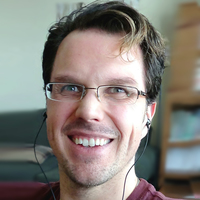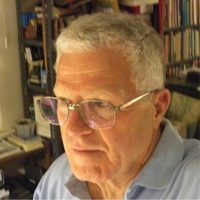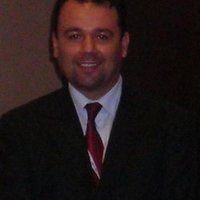
Tugberk Kaya
Tugberk was born on 21st April, in Nicosia, Cyprus. After his secondary education at Turk Maarif Koleji, he moved to the United Kingdom for his undergraduate degree. He studied BA (Hons) ‘Business Management with Marketing’ at University Campus Suffolk between 2009-2012.
He continued his studies at Kingston University, where he completed an MSc course in ‘Information Technologies & Strategic Innovation with Management Studies’.
Kaya completed his first PhD in ‘Innovation & Knowledge Management ‘ with a specialisation in e-government.
He completed his second PhD at Kingston University in Information Systems, focusing on using information systems to enlighten society.
He was a member of the board of the e-government management committee, which works under the prime ministry. Kaya is also a fellow at the Institute for Research in Economic and Fiscal Issues.
Kaya is an associate professor and his professional interests are ‘e-government’, ‘knowledge management’, ‘social media’ and ‘process innovation’.
Kaya is also co-founder and Corporate Communications Manager of the ‘Can Kid’ and ‘Cans of Hope’ projects, which the European Union funds.
Kaya works at the Ministry of Foreign Affairs.
Supervisors: Mustafa Sagsan and Robert Mellor
Address: Cyprus
He continued his studies at Kingston University, where he completed an MSc course in ‘Information Technologies & Strategic Innovation with Management Studies’.
Kaya completed his first PhD in ‘Innovation & Knowledge Management ‘ with a specialisation in e-government.
He completed his second PhD at Kingston University in Information Systems, focusing on using information systems to enlighten society.
He was a member of the board of the e-government management committee, which works under the prime ministry. Kaya is also a fellow at the Institute for Research in Economic and Fiscal Issues.
Kaya is an associate professor and his professional interests are ‘e-government’, ‘knowledge management’, ‘social media’ and ‘process innovation’.
Kaya is also co-founder and Corporate Communications Manager of the ‘Can Kid’ and ‘Cans of Hope’ projects, which the European Union funds.
Kaya works at the Ministry of Foreign Affairs.
Supervisors: Mustafa Sagsan and Robert Mellor
Address: Cyprus
less
Related Authors
danah boyd
Microsoft Research
Steffen Boehm
University of Exeter
Radhika Gajjala
Bowling Green State University
Marc Champagne
Kwantlen Polytechnic University
David Seamon
Kansas State University
Armando Marques-Guedes
UNL - New University of Lisbon
Noe Cornago
University of the Basque Country, Euskal Herriko Unibertsitatea
John Sutton
Macquarie University
J.-C. Spender
Kozminski University
METE YILDIZ
Hacettepe University
InterestsView All (9)










Uploads
PAPERS by Tugberk Kaya
Article Preview
Article Preview
not a new concept, the sharing of tacit knowledge at the social media environment has recently been discussed in the last
decades. There are mainly two important approaches on sharing and capturing the tacit knowledge. The first one is about
the possibility of sharing tacit knowledge by using social networks tools. For example Hildrum (2009) and Lopez-Nicolas and
Soto-Acosta (2010) mentioned that IT can trigger sharing of the tacit knowledge. The second one argues that it is almost not
possible to share tacit knowledge by using IT tools. Sagsan (2003) argued that according to the mental models, transmission
stage is problematic which includes common sharing and diffusion within an organization among stakeholders. Likewise,
Flanagin (2002), Johannessen et al, (2001), Hislop (2001) and Haldin-Herrgard (2000) argued that though tacit knowledge
sharing via IT is almost impossible. This paper argues that social media can be used effectively to increase the tacit knowledge
capacity. As the people need to be contacted from their preferred medium of choice (Fill, 2011) it will be suitable to use
social networks to share the tacit knowledge within organizations. The empirical part of this study concentrated on physicians
in order to understand how the tacit dimension of knowledge capacity could be diffused or captured. Questionnaire had
been conducted to 138 physicians who works in North Cyprus and the regression models indicates that Seniority of
Employees and the Speed of Adaption of Innovation affects both Tacit Knowledge Accumulation and Tacit Knowledge
Transfer.